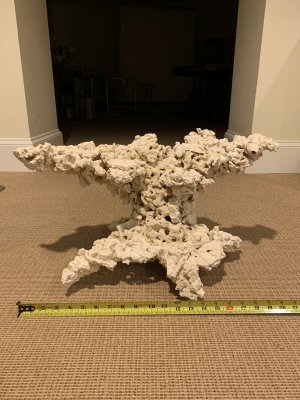This question can get a bit confusing but let me try to be as clear as possible. I am NOT asking if I should cycle my rock for the purpose of bacteria growth. I am NOT asking if I should "cure" old dry rock to get rid of organics on the rock. I AM asking why do I need to let my perfectly good brand new never been in a tank dry MacroRocks in circulate in salt water? What is it about the NaCl that is improtant? I went to the MacroRock site and they do recommend to circulate the rock in salt water for several weeks. But why not fresh water?
Thanks in advance,
SC
Thanks in advance,
SC



















